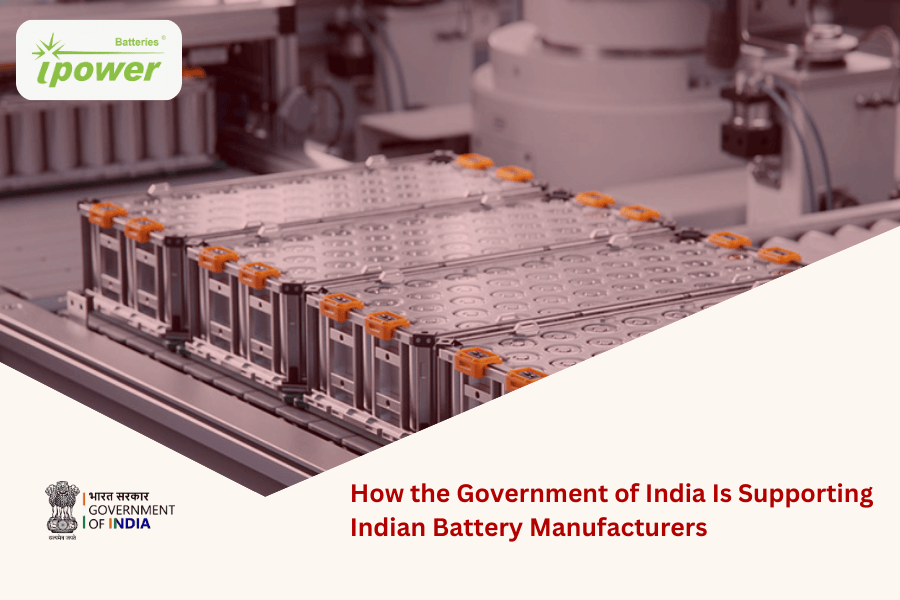The Indian government is making significant strides to support domestic battery manufacturing, recognizing its pivotal role in the nation’s transition to green energy, self-reliance, and economic growth. In this blog, we delve into the initiatives, policies, and frameworks that are empowering Indian battery manufacturers and boosting their global competitiveness.
India is embarking on a transformative journey toward sustainable energy, where battery manufacturing is a cornerstone. Batteries power electric vehicles (EVs), renewable energy storage solutions, and various consumer electronics. Aware of its importance, the Government of India has introduced a series of initiatives to foster the growth of domestic manufacturers and position India as a global leader in this sector.
Importance of Battery Manufacturing
Role in Energy Transition
Batteries enable efficient storage and utilization of renewable energy sources like solar and wind, reducing India’s dependence on fossil fuels. By promoting indigenous battery manufacturing, the government aims to build a robust, sustainable energy infrastructure.
Support for EVs
Electric vehicles rely on advanced battery systems. To reduce carbon emissions and drive EV adoption, the government is prioritizing the development of high-performance, cost-effective batteries.
Government Initiatives Supporting Battery Manufacturing
The Make in India Initiative is a cornerstone of the Indian government’s efforts to promote domestic manufacturing, including the battery industry. This campaign aims to reduce reliance on imports by encouraging Indian manufacturers to produce high-quality batteries locally, thereby fostering self-reliance. A significant focus is placed on innovation, with an emphasis on research and development to create cost-effective and sustainable battery solutions that cater to both domestic and global markets.
Complementing this is the Production Linked Incentive (PLI) Scheme, a transformative policy for the battery manufacturing sector. Its primary objective is to establish a robust manufacturing base for advanced batteries, prioritizing technological advancements and enhancing market competitiveness. With a substantial budget allocation of ₹18,100 crore, the scheme offers financial incentives tied to production milestones, enabling manufacturers to achieve economies of scale and boosting overall industry growth.
The Battery Swapping Policy adds another layer of innovation by addressing cost and convenience challenges for EV users. This policy emphasizes the standardization and interoperability of battery swapping systems, creating a seamless experience for consumers while opening up new opportunities for manufacturers. By encouraging the production of swappable and efficient battery systems, it reduces the financial burden of battery ownership and promotes wider EV adoption.
Lastly, the government’s Focus on EV Ecosystem is underscored by the FAME India Scheme (Faster Adoption and Manufacturing of Hybrid and Electric Vehicles). This initiative has played a pivotal role in accelerating the adoption of EVs in India by offering incentives that create consistent demand for high-quality batteries. Together, these initiatives highlight the government’s comprehensive strategy to support and advance the Indian battery manufacturing industry, driving innovation, sustainability, and economic growth.
Supporting Innovation and Infrastructure
The Indian government is actively supporting research and development in battery technology by providing grants and fostering collaborations between academic institutions and industries. This approach is helping to advance cutting-edge technologies, including lithium-ion and solid-state batteries, which are pivotal for the country’s energy transition. To further boost the sector, the government has implemented significant taxation and duty benefits. For instance, the Goods and Services Tax (GST) rate on EVs and batteries has been reduced to 5%, making them more affordable for manufacturers and consumers alike. Additionally, temporary import duty exemptions on critical raw materials aim to encourage the localization of battery production, reducing dependency on imports.
In terms of infrastructure, specialized battery parks are being established to streamline manufacturing processes and attract investments. These parks offer an integrated environment for battery production, fostering efficiency and innovation. Moreover, the government is upgrading logistics networks to ensure the efficient transportation of raw materials and finished products, thus enhancing the overall supply chain and boosting the industry’s growth potential.
Investment and Skill Development
The Indian government is actively fostering investment and skill development in the battery manufacturing sector to strengthen its foundation and ensure long-term growth. Substantial government subsidies are provided to both startups and established firms, encouraging them to venture into battery production and innovation. Additionally, eased regulatory norms are attracting significant foreign direct investment (FDI), enabling global players to collaborate with domestic manufacturers and bolster India’s manufacturing capabilities.
On the workforce front, the government is prioritizing skill development initiatives to meet the industry’s growing demands. Specialized training programs are being designed to create a skilled workforce adept at handling the latest battery manufacturing technologies. Furthermore, there is a strong emphasis on workforce upskilling, ensuring employees stay updated with technological advancements and can contribute effectively to the sector’s progress. Together, these efforts are creating a robust ecosystem that supports both industrial and human resource development in the battery manufacturing industry.





